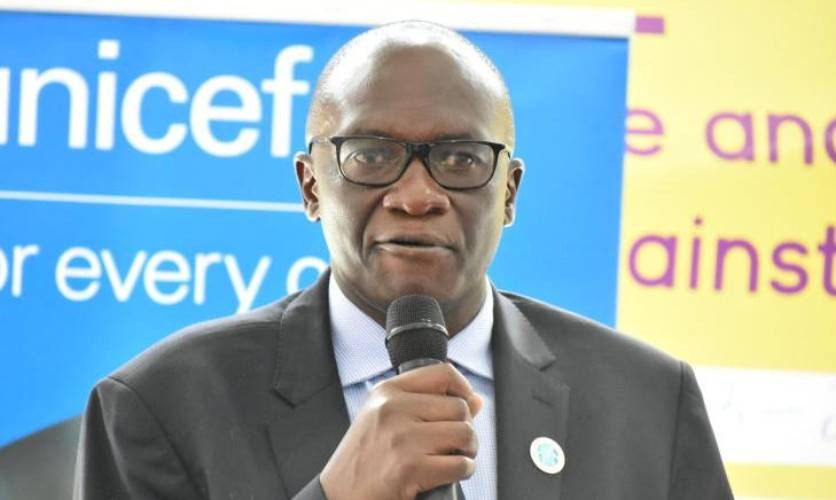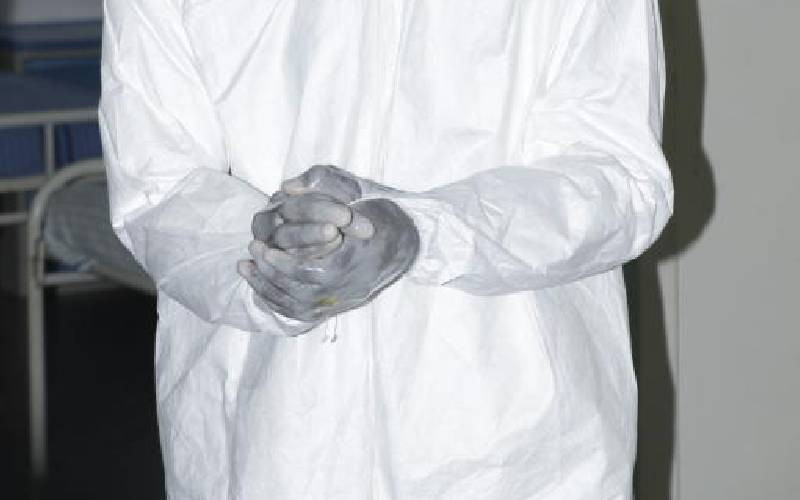Nurses are vital players in the healthcare system. They form the largest global healthcare workforce, yet despite their instrumental role, their plight, in most cases, is not being fully considered.
Covid-19 is testing all of us, but for nurses on the frontline, the intensity is heavier and will remain so until we exit this crisis. Their key input in the healthcare system is important now more than ever as they are often the last line of care in the continuum of life.
They are undertaking to screen and triaging of clients and patients, managing the critically ill, implementing safety protocols of infection, prevention and control, communicating to families, and attending to those at the end of life.
The number of confirmed Covid-19 cases has crossed the 10,000 mark in Kenya. As the numbers continue to surge countrywide, nurses on the frontlines of the health response are continuously finding themselves making high-stake decisions for patients and themselves, too.
It is a difficult but selfless moment as they have to leave the safety and comfort of their homes to go save lives.
For the general population, the message at this time has always been “stay home, stay safe”. But for nurses and other healthcare workers, the case is different. They are in the battlefield, fighting the invisible enemy.
For nurses, patients are their first priority. But that doesn’t mean their well-being and that of their families takes a back seat.
They have to grapple with questions like, “Are we potentially causing harm to our families by coming home from work every day?” and “How do we balance the needs of our loved ones with the endless needs of patients?” These tough questions, which they have to grapple with daily, can lead to a psychosocial crisis for nurses, patients, as well as their families.
As a profession, the sacrifices they are making, not mentioning their life sacrifices, are testimony to what they are ready to undertake to ensure they save lives.
But even as nurses are prepared to put their lives on the line to save humanity, we must accept that they need adequate support from various stakeholders. For years, the nursing profession has not been receiving the attention it deserves despite the very critical role it plays in advancing healthcare. This has been manifested in the minimal budgets allocated over the years towards training, as well as hiring of qualified nurses and midwives to meet the recommended nurse-midwife per population ratios as stipulated by the World Health Organisation (WHO).
Nurses are an essential part to achieving Universal Health Coverage (UHC) and are responsible for 90 per cent of the contacts between patients and other health professionals. In light of this, WHO indicates that the world needs nine million more nurses by the year 2030. It is a genuine call that must be spearheaded by key stakeholders if we are to achieve better healthcare.
Addressing challenges faced by nurses needs concerted effort. We must first ensure that there is adequate staffing in hospitals and other healthcare facilities. This can only happen if the government continuously trains, employs and improves working conditions for the nurses and midwives.
This year, coincidentally, nurses and midwives are celebrating the International Year of the Nurse and the Midwife. As they continue to play a key role in nursing the world back to health, we must remain cognisant of the fact that nursing is one of the major professions that is nursing the world back to health in the context of Covid-19.
Great job
They, therefore, need to be equipped more. This is also the time when the availability of quality personal protective equipment (PPEs) and allowances for nurses should be prioritised.
Stay informed. Subscribe to our newsletter
We are aware countries are making efforts towards streamlining co-ordination across health systems and empowering their robust workforces. This, I must emphasise, are developments that are critical in helping nations achieve better outcomes, especially during this crisis.
Having said the above, the task before us is to continue addressing the challenges nurses and midwives face, while at the same time recognising the great job they do.
We also need to strengthen our healthcare workforce by making sure that nurses and midwives’ training, hiring, working conditions and emerging issues are addressed appropriately. With this, we hope to make progress towards achieving UHC.
- The writer is the president, National Nurses Association of Kenya.
 The Standard Group Plc is a
multi-media organization with investments in media platforms spanning newspaper
print operations, television, radio broadcasting, digital and online services. The
Standard Group is recognized as a leading multi-media house in Kenya with a key
influence in matters of national and international interest.
The Standard Group Plc is a
multi-media organization with investments in media platforms spanning newspaper
print operations, television, radio broadcasting, digital and online services. The
Standard Group is recognized as a leading multi-media house in Kenya with a key
influence in matters of national and international interest.
 The Standard Group Plc is a
multi-media organization with investments in media platforms spanning newspaper
print operations, television, radio broadcasting, digital and online services. The
Standard Group is recognized as a leading multi-media house in Kenya with a key
influence in matters of national and international interest.
The Standard Group Plc is a
multi-media organization with investments in media platforms spanning newspaper
print operations, television, radio broadcasting, digital and online services. The
Standard Group is recognized as a leading multi-media house in Kenya with a key
influence in matters of national and international interest.









